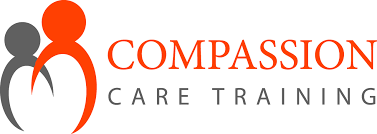This course is for all health care professionals who work in NHS and Health and Social Care settings to include Private Nursing and Residential homes supporting patients who are deteriorating to the dying stage.

Course Details
This course is for all health care professionals who work in NHS and Health and Social Care settings to include Private Nursing and Residential homes supporting patients who are deteriorating to the dying stage.
The participants will be able to gain awareness and knowledge on how to identify the early warning signs, the progression stage, the benefits and importance of supporting families and carers, empowering the dying patient through patient centred care, consent, capacity and ethics.
Identifying the early warning signs and the deteriorating dying patient, physical health conditions associated with the dying person, spiritual needs the benefits of various evidence based treatments, monitoring medications side effects, signs of death, dealing with death, grieving and bereavement.
Course Aims
For CCT Skilled Trainers to deliver high quality accredited face to face training with practical skills sessions which is tailored to organisational need and policies. For CCT skilled Trainers to deliver training which fulfils the current Core Skills Training Framework(CSTF), current CQC and NICE guidelines.
Learner Objectives
To gain knowledge and awareness of the early warning signs of near death
To gain knowledge and awareness the general and clinical indicators of end life
To gain knowledge and awareness of the benefits of Physical, Psychological, Social, Practical and Emotional support in the end of life journey
To gain knowledge and awareness of addressing spiritual needs in the end of life journey
To gain knowledge and awareness of the pharmacological and non-pharmacological treatment interventions of patients going through end of life journey
To gain knowledge, awareness and skills of monitoring and managing various types of seizures in the end of life journey
To gain knowledge and awareness of the benefits of ethics, consent to treatment, mental capacity, patient rights and patient centred care in the end of life journey
To gain knowledge and awareness of the benefits of effective communication when working and supporting a patient in end of life treatment and journey
To gain knowledge and awareness of the benefits of follow up care, relapse prevention and the role of the MDT and other support agencies like counsellors
To gain knowledge and awareness of the benefits of supporting carers, families and friends for someone going through end of life care
To gain knowledge, awareness and skills of monitoring and managing signs of near death in end of life journey
To gain knowledge, awareness and skills of care after death (Verification and Certification) in end of life journey
To gain knowledge, awareness and skills of Pastoral Care and Body Viewing in end of life journey
To gain knowledge, awareness and skills of understanding the principles and processes of coronial criteria in end of life journey
To gain knowledge, awareness and skills of special precautions of associated disturbances and radiation in end of life journey
Course Modules
Causes of Male and Female Deaths in the Uk?
The Determination and Identification stage of end of life
Early Warning Signs of Near Death
General and Clinical Indicators of end life
Principles of Communication in the end of life journey
The principles of Consent and Ethics in the end of life journey
The principles of Decision Making Process and Capacity in the end of life journey
Holistic Assessment and Care Planning in the end of life journey
The benefits of Patient-Centred and Co-ordinated Care in the end of life journey
The benefits of Physical, Psychological, Social, Practical and Emotional support in the end of life journey
Addressing Spiritual Needs in the end of life journey
Dealing with Palliative Emergencies and Care in the end of life journey
Monitoring and Management of Various Types of Seizures in the end of life journey
Assessment , Signs and Symptoms in the Last Daysin end of life journey
Monitoring Hydration in end of life journey
Pharmacological Interventions in end of life journey
Managing Pain, Breathlessness,Anxiety,Agitation, Delirium, Noisy Respiratory Secretions in end of life journey
Signs that, death is near in end of life journey
Care after death (Verification and Certification) in end of life journey
Collaboration with family in special arrangements, rituals and managing personal belongings in end of life journey
Pastoral Care and Body Viewing in end of life journey
Understanding the Principles and Processes of Coronial Criteria in end of life journey
Special Precautions of Associated Disturbances and Radiation in end of life journey
Incident Reporting in end of life journey and Current Nice Guideline in end of life journey
Course Benefits
This face to face course provides learners with an in-depth insight and understanding of the causes of the dying person.How to empower the dying patient through patient centred care, consent, capacity and ethics.
Identifying the early warning signs and the deteriorating dying patient, physical health conditions associated with the dying person, spiritual needs the benefits of various evidence based treatments, monitoring medications side effects, signs of death, dealing with death, grieving and bereavementThe benefits of family and carers involvement and current evidence based pharmacological and non pharmacological treatments.
CCT – Speacialists in Management of Violence & Aggression (MOVA) and Prevention & Management of Violence & Aggression (PMVA); All in One Day Mandatory & Statutory Training and a wide range of Essential Health Training Courses.
With CCT, you are assured that ‘Your Safety is our Priority’.
Our training packages are designed to ensure that your staff gets the latest information on terms of legislation and techniques that enable them to fulfil their roles safely and competently.
We provide a reliable and flexible service delivering the training you need – when you need it.
With CCT, you “own” your training. Our trainers will work closely with you to develop a training package that is tailor made for you to meet your needs in terms of course content, time and location.
© 2025 coursetakers.com All Rights Reserved. Terms and Conditions of use | Privacy Policy